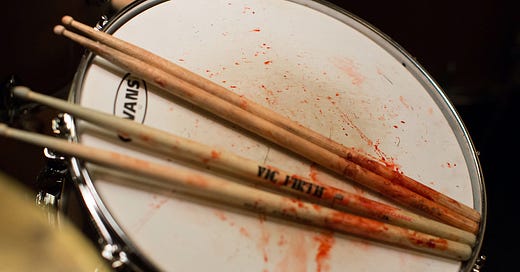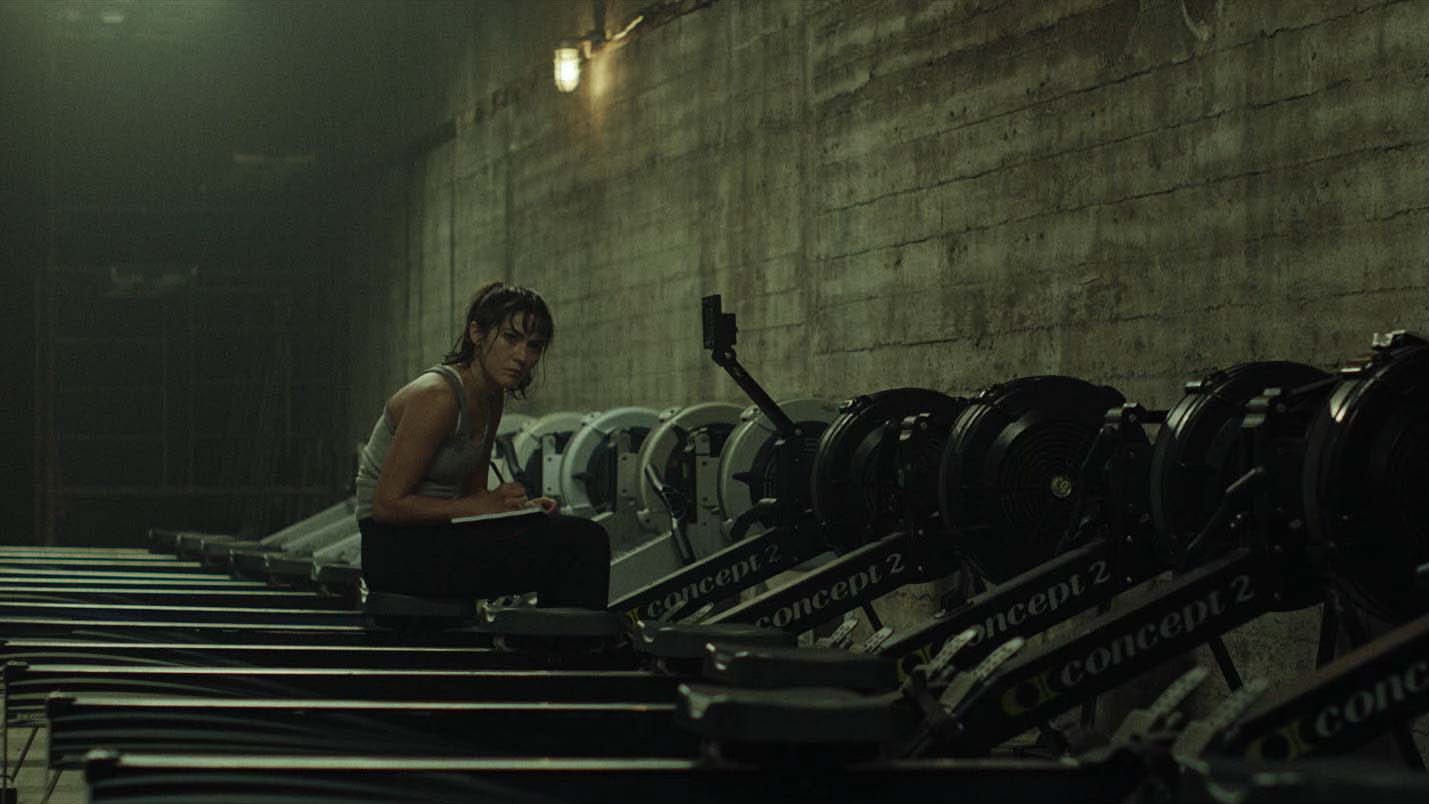Subscriptions here remain free and thank you to everyone who continues to stop by this humble abode. So please, share with others and…
As we once again receive news of gun violence erupting in the public square, with one dead and over twenty people injured, I thought it might be time for another installment of “Gun-Free Entertainment.” The two films I’ve selected are both excellent but challenging, as they deal with different views of “obsession” as a human quality and equally test the boundary between dedication and obsession. I am thinking about obsession because, well, our obsession with guns is ravaging our nation and our bodies.
We live in a culture where “10,000 hours” has evolved into an accepted piece of pop-culture wisdom, and there is indeed much to admire about deep work and commitment to a craft, skill, or practice. I have written about this in relation to music: the thousands of hours required for even a basic level of mastery all require personal sacrifice—the time alone practicing could be spent among family and friends, which is why I always feel deeply privileged to hear a true master perform; I receive the benefit of their extended sacrifice compressed into the short period of my consumption of their talent.
But when does dedication cross over into an unhealthy place? Into obsession that damages not only yourself, but the web of relationships you require for personal stability and health?
Enter Whiplash. And let me assure you there has never been a more appropriate title.
Whiplash delivers Miles Teller and JK Simmons in peak form (JK Simmons is permanently in peak form). Teller, a student at a prestigious music school, hopes to study with the institution’s most prestigious teacher—JK Simmons—with Teller’s goal being to become a truly great jazz drummer. Not just good or kind of great, but Gene Krupa elite. The domineering Simmons is juxtaposed with Teller’s empathetic, understanding father, played by Paul Reiser (hooray for Paul Reiser getting a role, we’re mad about him at The Declining Academic!).
I will provide no spoilers, so let me say this: I watched this film with my daughters (one of whom plays drums), and we were on edge with knots in our stomachs from start to finish. I had no idea that a movie about music could be so tense—this film makes Tár feel like Toy Story.
So here is my challenge to any readers who might watch this film (and it’s totally worth it): how do you interpret the final scene and final exchange of looks between Miles Teller and JK Simmons? Has something positive occurred and we have had a breakthrough? Or have we crossed into territory where a mentor driven by obsession has successfully pulled his pupil across that threshold? Furthermore, and this is the difficult question—is such an outcome okay? The obsessions of troubled people often produce what we find most beautiful in terms of human expression. See: Vincent Van Gogh; the most miserable man who ever lived.
I would love to hear back from anyone regarding their feelings about this film because I think about it a lot. It makes that much of an impression.
Like Whiplash, the film The Novice (available on Netflix) takes the idea of obsession and locates in a single character rather than in a pair. Isabelle Fuhrman plays the lead and, wow, does she clear the bar by an Olympic world record in this one. The Novice is a much rawer film that Whiplash, as the main character clearly has a traumatic background which is never explained, but we certainly see its results. (There are a few uncomfortable scenes, as art often requires.)
Instead of music, the source of The Novice’s obsession in rowing. Not only does Fuhrman’s character, a college freshman, want to make the varsity team, but she wants to be the best rower and break all school records, no matter how trivial and no matter the cost to herself, to others, and especially to her body. This film got me thinking a lot about athletic obsession and our undeniable culture of “first to arrive, last to leave, work work work and grind grind grind!” The gun violence I refer to in the opening paragraph connects to a celebration of America’s most popular and violent sport—football—which often comes at great physical cost later in life.
As you’d expect, relentless obsession in this film, like in our lives, results in alienating those around us who do not share that obsession. Still, the word “obsession” is not necessarily negative in connotation—I am obsessed with books, literature, and writing, so much so that I’ve dedicated my life to it. So again, the focus is on the threshold, and The Novice, unlike Whiplash, will fly across that line quite early.
Like with Whiplash, I would offer readers a challenge and would love to hear any responses: the final scene/moment of this film is powerful and open to multiple interpretations. I vacillate between a few positions on what happens at the film’s conclusion and why the character does what she does. Has obsession been conquered and Fuhrman’s character has reached catharsis? Or, in a much darker reading, is it time to simply move on to the next obsession?
I recommend both films not only because they are gun free (props to them both for realizing that guns and gunfights are the most boring, content-free scenes in film and television! They are even more boring and trite than “driving-the-wrong-way-up-a-one-way-street” scenes.), but they both shine an intense light on a human quality that we don’t discuss as often as we should. Yes, we must value dedication and deep work—these qualities are essential to the success of society and its institutions. Yet, when it comes to art or entertainment (like sports), are we often taking this work and possible unhealthy obsession for granted. We want our entertainment, yet do we also want the true cost of that performance to remain hidden from us?





